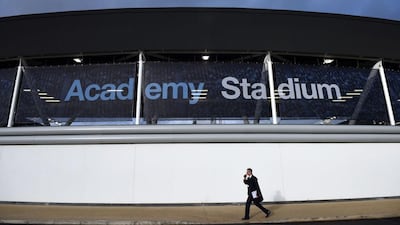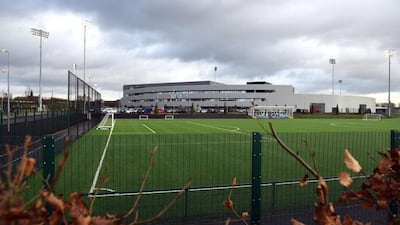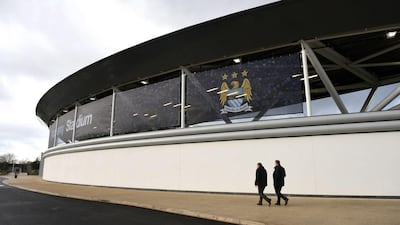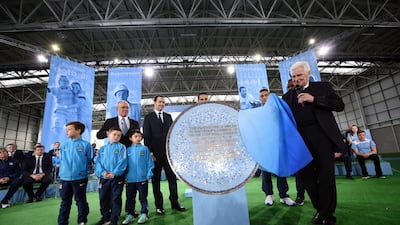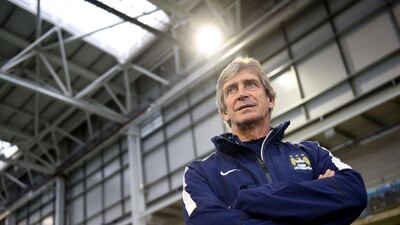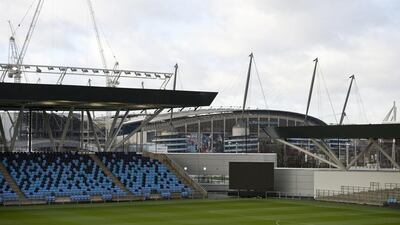It’s not often a top football team wants to score zero but that’s the aim of English football champions Manchester City.
The Abu Dhabi owned club are determined to eradicate their carbon footprint by the end of the decade as they continue to spearhead the sport’s contribution to sustainability.
While the 200 nations represented at the current Cop26 conference in Glasgow press for global solutions to a potential climate catastrophe, City can point to seven years of concentrated efforts following their move into the City Football Academy (CFA) in the heart of Manchester.
Even as their near £200m campus was being built, the club was actively cleaning soil that had been subjected to a century of pollution. The whole project, which brought together all the training pitches, senior and junior teams and the non-football staff on one site, was predicated on long-term social and physical sustainability.
Potential sites were looked at outside Manchester before it was decided to settle for an inner-city location next to the Etihad Stadium where the club could make the biggest positive impact on their neighbours and the environment.
City pledged to use local labour and local resources, immediately cutting down travel and transportation. They hired 228 apprentices (38 of whom had low literacy skills which the club addressed via applied learning in their apprenticeship programme) and all of them worked on the project and went on to get a full time job or go into further education.
Manchester City launch new City Football Academy in 2014
In the first months of the CFA - now home to 600 plus staff - City planted 3,000 mixed varieties of trees on site, 4.3 kilometres of hedgerow, and a host of wild flower meadows as they sought to create a green corridor and change the ecology of the one-time industrial area.
They also appointed a director of sustainability, Pete Bradshaw, who oversees the reduction in carbon footprint with the same enthusiasm and ambition as Pep Guardiola trains the Premier League players.
“We have changed the image of this area and set a great example,” he said, proudly. “We have been working hard on sustainability for a long time now to the point where it is ingrained in the culture of the organisation and not just here at Manchester City but also in the other teams in the City Football Group and with our sponsors and partners.
“We have done a lot already but we will not be resting until we get to net zero carbon footprint by the end of the decade. We are planning and innovating on a daily basis to hit that target which will not be easy because here at City we are totally open and honest about our carbon footprint and we count fan travel in that.
“In addition to implementing the practical steps surrounding the infrastructure, there is an education aspect that includes making staff aware of wastage and efficiency. They know not to be careless with energy and we use the players and sponsors to get that message access to the public too. It’s an incredibly powerful one when delivered sincerely by super star players and managers.
“We were the first club to totally get rid of single use plastics, a scheme which has been on-going since 2019 and included eradicating plastic straws, sauce sachets, knives and forks and spoons from the Etihad Stadium.
“We always actively seek to work with local producers to supply our stadium and training ground so we reduce food and travel miles and we have introduced a managed waste system which means zero waste is sent to landfill.
“Everyone here is proud that in the last seven years we have slashed our carbon footprint by an average of 14% per annum. It has been a concerted effort and we will continue to redouble those efforts. It’s important we set the best example possible.”
City have recycling systems in place to harvest rainwater so that the CFA is self-sufficient when it comes to water use. They recycle it for the pitches and to flush the toilets and have their own drinking water borehole. They are also well advanced in making the main stadium self-sufficient when it comes to water.
More recently City grabbed headlines by introducing edible drinking cups on match days but in a less publicised move also changed all stadium lighting, including the floodlights, to LED saving 1.3million kilowatt hours of electricity. The club only buys electricity from renewable sources.
In addition, they are introducing electric fleet cars and will provide staff car battery charging for free, have introduced a cycle to work scheme, plus flexible working where possible. Staff have also committed to more digital meetings rather than travelling between offices - saving money and reducing the carbon footprint further.
By investing in and incorporating the latest technology, each hectare of the CFA turf grass now absorbs 6.5-8.5 tonnes of CO2.
“It’s our place to make sure we have a positive impact on all our communities now and in the future,” Bradshaw said.
“We were founded as a community club and our reason for being was to help local people. These principles are still important to our owners. Our ambition to assist positive change has grown significantly.
“Whether it’s managing our environmental impact, improving the life chances of neighbours or the way we run our business - sustainability sits at the heart of all our decision making.
“There are ongoing projects which centre on investigating how we generate more of our own energy. There is a real commitment."

